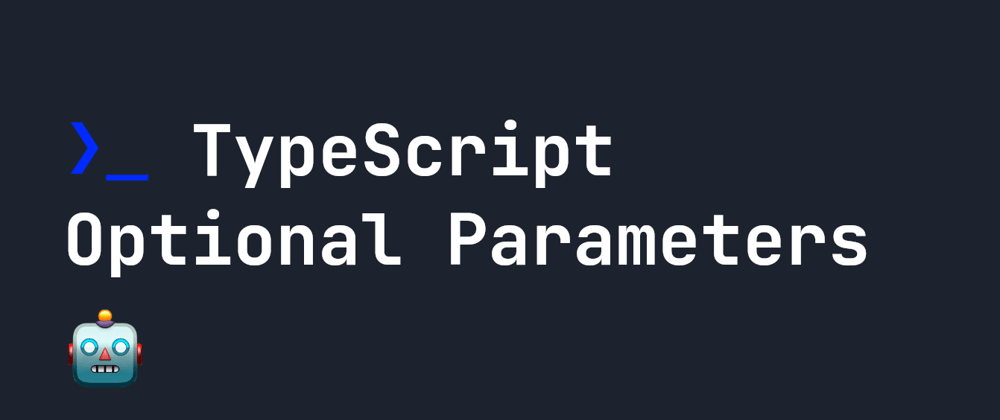In Javascript, if a function has 4 parameters, and we only use 3, it's no big deal - Javascript just ignores the missing parameter and runs the function as if it is undefined.
In TypeScript, things are a little different. If you try to run a function with a different number of parameters than the function actually has, you'll get an error. For example, consider this:
const myFunction = (a: string, b: string, c?: string) => {
return a + " " + b + " " + c;
}
let runFunction = myFunction("Hello", "there");
The above code will throw the following error:
Expected 3 arguments, but got 2.
TypeScript does this to ensure fewer errors, since leaving a parameter out of a function you are calling can sometimes break the function. As such, we need to tell TypeScript specifically that one or more of the parameters we defined on the function are optional. In order to do that, we use a ? after the parameter, to denote that it is actually an optional parameter.
For example, if we wanted to make c optional on our original function, we could write the following - and not get an error:
const myFunction = (a: string, b: string, c?: string) => {
return a + " " + b + " " + c;
}
let runFunction = myFunction("Hello", "there");
console.log(runFunction);
Now our function will run as expected, however the output will be Hello there undefined. This may not be your desired behaviour, which is exactly why TypeScript has these controls in place - it can help prevent unwanted outcomes by requiring certain parameters.
In TypeScript, however, an optional parameter cannot be followed by a required one. So for example, the following code will not work:
const myFunction = (a: string, b?: string, c: string) => {
return a + " " + b + " " + c;
}
It will produce the following error:
A required parameter cannot follow an optional parameter.
We can combine this optionality with the use of the typeof operator to produce code that makes sense. For example, if c is optional and undefined, then we can ignore it, like so:
const myFunction = (a: string, b: string, c?: string) => {
if(c === undefined) {
return a + " " + b;
}
return a + " " + b + " " + c;
}
let runFunction = myFunction("Hello", "there");
console.log(runFunction);
Now the output of our code will be Hello there, but we could also run it with c to produce a different output, for example:
const myFunction = (a: string, b: string, c?: string) => {
if(c === undefined) {
return a + " " + b;
}
return a + " " + b + " " + c;
}
let runFunction = myFunction("How", "are", "you?");
// Returns "How are you?"
console.log(runFunction);







Top comments (5)
You don't need to do a runtime
typeofJavaScript introspection. Indeed, herecis declared. Use typeof only to check if a variable is declared.Just works in your example.
You can use
typeofto check for global variables. For example :will throw an exception on nodejs when it will return false on your browser.
In this case, yes you should use
typeof:You're right, in fact
typeof c == undefinedwon't work at all sincetypeofreturns a string. I've updated.Default values?
If you have multiple optional parameters you can force the default value of the argument(s) you don't want to explicitly provide by passing
undefined(no,nulldoesn't work; drives home thatundefinedis the real bottom type).you can do that, yes, it's a good point. Maybe I can write something else about default values.
Am I missing something or is there a typo? You've marked c as optional in the first two snippets